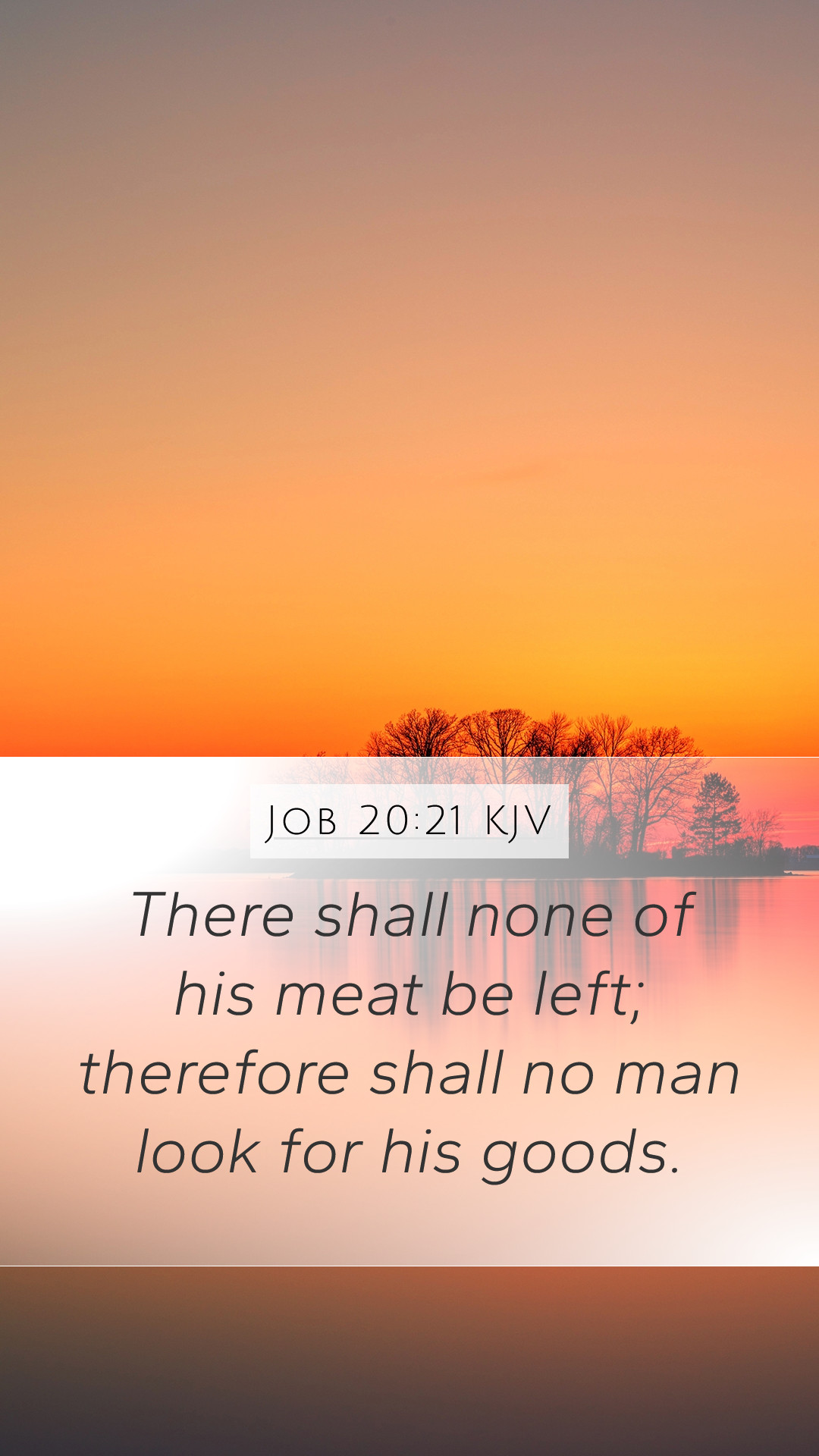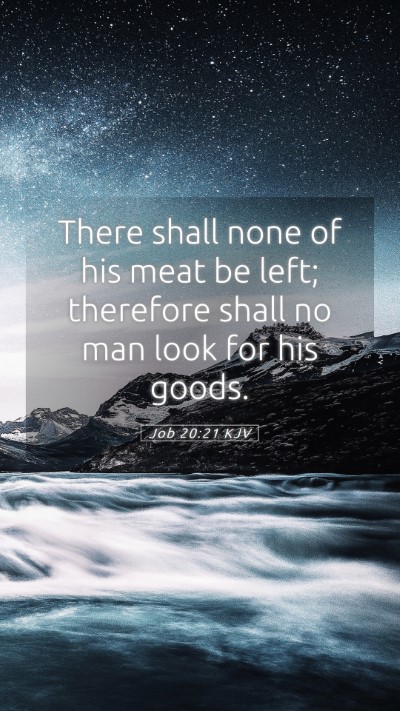Old Testament
Genesis Exodus Leviticus Numbers Deuteronomy Joshua Judges Ruth 1 Samuel 2 Samuel 1 Kings 2 Kings 1 Chronicles 2 Chronicles Ezra Nehemiah Esther Job Psalms Proverbs Ecclesiastes Song of Solomon Isaiah Jeremiah Lamentations Ezekiel Daniel Hosea Joel Amos Obadiah Jonah Micah Nahum Habakkuk Zephaniah Haggai Zechariah MalachiJob 20:21 Meaning
What is the meaning of Job 20:21?
There shall none of his meat be left; therefore shall no man look for his goods.
Job 20:21 Bible Verse Meaning
Bible Verse Explanation: Job 20:21
Verse: "There shall none of his meat be left; therefore shall no man look for his goods." (Job 20:21)
Summary of Insights
This verse is part of Zophar's speech, where he speaks against Job's arguments and outlines the fate of the wicked. The core of the verse emphasizes the total loss that befalls the unrighteous man, illustrating a vivid picture of judgment and the consequences of a life lived in sin.
Verse Meaning
-
Matthew Henry Commentary:
Henry posits that this verse contributes to the general theme of divine retribution. Zophar asserts that the wicked may enjoy brief prosperity, but ultimately, they face utter destruction. The phrase "none of his meat be left" signifies that when calamity strikes, everything that one has sought to gain or enjoy will be stripped away, leaving them in utter desolation.
-
Albert Barnes Commentary:
Barnes expands on the notion of the transitory nature of earthly possessions, suggesting that whatever wealth or possessions the wicked acquire will vanish when judgment comes. He interprets "no man look for his goods" as symbolic of the finality of judgment, where the wicked's hopes of recovery are dashed. This loss serves as a powerful warning against the transient nature of material success.
-
Adam Clarke Commentary:
Clarke emphasizes the stark reality presented in this verse, that the wicked will ultimately face a stark reckoning. He elaborates on the culture surrounding food and wealth, noting that in ancient times, wealth was closely tied to the ability to provide meals. Thus, the complete loss mentioned speaks volumes about the shame and destruction the wicked will encounter, highlighting the futility of their pursuits.
Key Themes
- Divine Justice: The verse serves as a reminder of God’s justice and the inevitable outcome for those who lead a life contrary to His teachings.
- Transient Nature of Wealth: Reflects on the fleeting nature of material possessions and the ultimate emptiness of worldly pursuits.
- Consequences of Wickedness: Illustrates that the lifestyle embraced by the wicked leads to destruction and loss, reinforcing the moral order established by God.
Application in Life
This verse invites readers to reflect deeply on their own lives and the importance of aligning their actions with God’s will. Believers are encouraged to seek spiritual riches rather than material wealth, recognizing that true fulfillment comes from a relationship with God rather than worldly possessions.
Related Bible Cross References
- Proverbs 11:7 - "When the wicked dies, his hope will perish."
- Psalm 37:20 - "But the wicked shall perish."
- Matthew 6:19-20 - "Do not lay up for yourselves treasures on earth."
Conclusion
In summary, Job 20:21 serves as a profound commentary on the nature of wealth and the consequences of wickedness. It invites us to engage in Bible study insights that not only inform our understanding of Scripture but also guide our daily living in alignment with God's principles. For those participating in Bible study groups or engaging in online Bible study, this verse, alongside the insights from various commentaries, enhances the Bible verse interpretation and encourages a deeper exploration of how to interpret Bible verses effectively.


